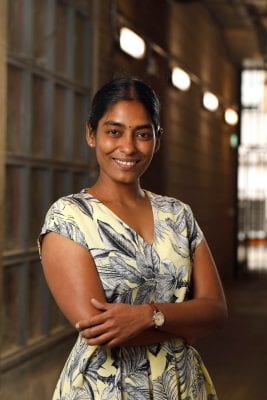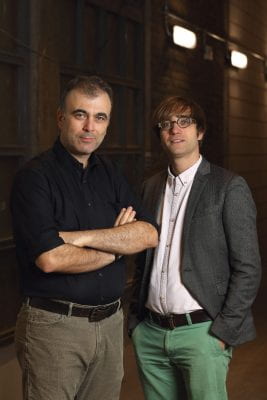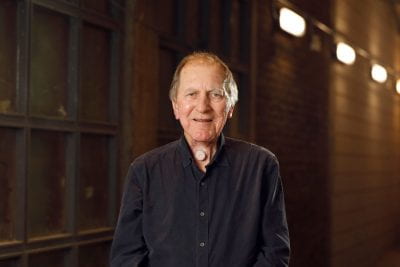Performing Health: One year on.
By helencraig, on 25 November 2020
This blog has been written by Public Engagement Manager, Helen Craig, about her experiences supporting Performing Health, part of the Performance Lab programme which brings together artists, researchers, and students to explore how performance can animate research.
It’s bittersweet to remember the Performing Health symposium held by UCL Culture almost a year ago. So many performers, practitioners and researchers meeting in person. So many inspiring conversations and serendipitous meetings. So much cake. While sadly this blog can’t replicate the baked goods, I’m hoping that, one year on, it can detail some of the positive impacts to come out of the day, and share what’s coming next from participants and the UCL Culture team.
Performing Health was a half-day event in late 2019, where academics, artists and community organisations came together to explore how performance can animate and enrich health research, and how health research can inspire art. There was a range of inspiring case study presentations, facilitated discussion and opportunities for networking. The best first start if you want to tap into what the morning was like is to watch the video on Vimeo below.
For me, Performing Health has been on my mind because I was recently lucky enough to chair a discussion for the Bloomsbury Festival of one project that found an essential partner at the symposium, Experiencing Fatigue. The project is led by neuroscientist Dr Anna Kuppuswamy, and she spoke at Performing Health about the inspirations from her research that had driven her to look for more metaphorical, and honest, ways for patients to describe fatigue after stroke, rather than the simple questions asked in some studies. Also in attendance was Siân Aggett, the Public Engagement Coordinator, and artist Sofie Layton, furthering her practice as an artist whose work explores the creative interface between patients and the scientific clinical landscape.
After the Symposium, Sofie reached out to the Experiencing Fatigue team, and became the commissioned artist to work on the project. Despite the impact of the Coronavirus Sofie, Sian, Anna and the team have put in huge amounts of work bringing the online groups together, and creating some unique and beautiful pieces of art.
At the Bloomsbury Festival session, we spoke with Sofie, William De Doncker, a researcher who has been working on project since it started, and two stroke survivors and participants in the project, Vanessa Muir and Jo Clark-Bould. We were also able to premiere Ensnared, a hand-drawn animation conceived and directed by Sofie and arising from the workshops and artistic input of stroke patients like Jo and Vanessa.
You can read more about the project on the bloomsbury festival blog or watch the entire session recording on Vimeo– I found it an amazing experience.
You can follow Experiencing Fatigue and the work which continues to develop on the Experiencing Fatigue website, twitter account and Facebook page, and see more of Sofie’s work on her website.
Of course, our other speakers, facilitators and workshop partners have also achieved incredible things over this past year, and I only wish I could spend more time going into the number of ways cultural and research institutions have adapted to this more unusual time. But I wanted to give a special recognition to Beatboxing Without A Voicebox, who were represented at the Symposium by Dr Thomas Moors, Director and founder of Shout at Cancer choir, Prof. Evangelos Himonides, Reader in Technology, Education, and Music at UCL, and Anthony Smith, Shout at Cancer Choir member.
One immediate outcome of Performing Health for them was that myself and Evangelos were invited to speak at a Division of Psychiatry seminar on public engagement and patient involvement. But the team did not really need the symposium to become well known – their important work continues and they have recently won the UCL Provost’s Public Engagement Experimentation award for their innovative work. You can see a short video celebrating their project on YouTube.
For myself, it’s the brief moments and serendipitous connections that I remember the most. Being introduced to performative workshops with the amazing work of Sarah Josefsberg. Meeting an artist working on a UCL project and being able to signpost her in the direction of top up funding. Chatting over tea and cakes with everyone and anyone.
So, what comes next? For UCL Cuture, host of Performing Health, we hope to work towards an in person, socially distanced yet immersive event in February in the Bloomsbury studio, featuring the Experiencing Fatigue outputs. But we’re aware that openings will be uncertain. In the longer term, we’ll be holding a festival in May that is all about intimacy, touch and social distance. ‘In Touch’ will look at what it means to connect.
If you’re interested in hearing more about this upcoming work, sign up to the UCL Culture mailing list. We want to hear from you – especially if you work at UCL on projects that might connect to performance and health, or if you attended Performing Health and have continued working on projects that have come out of this. Please do let us know in the comments or by emailing the engagement team at UCL.
 Close
Close




